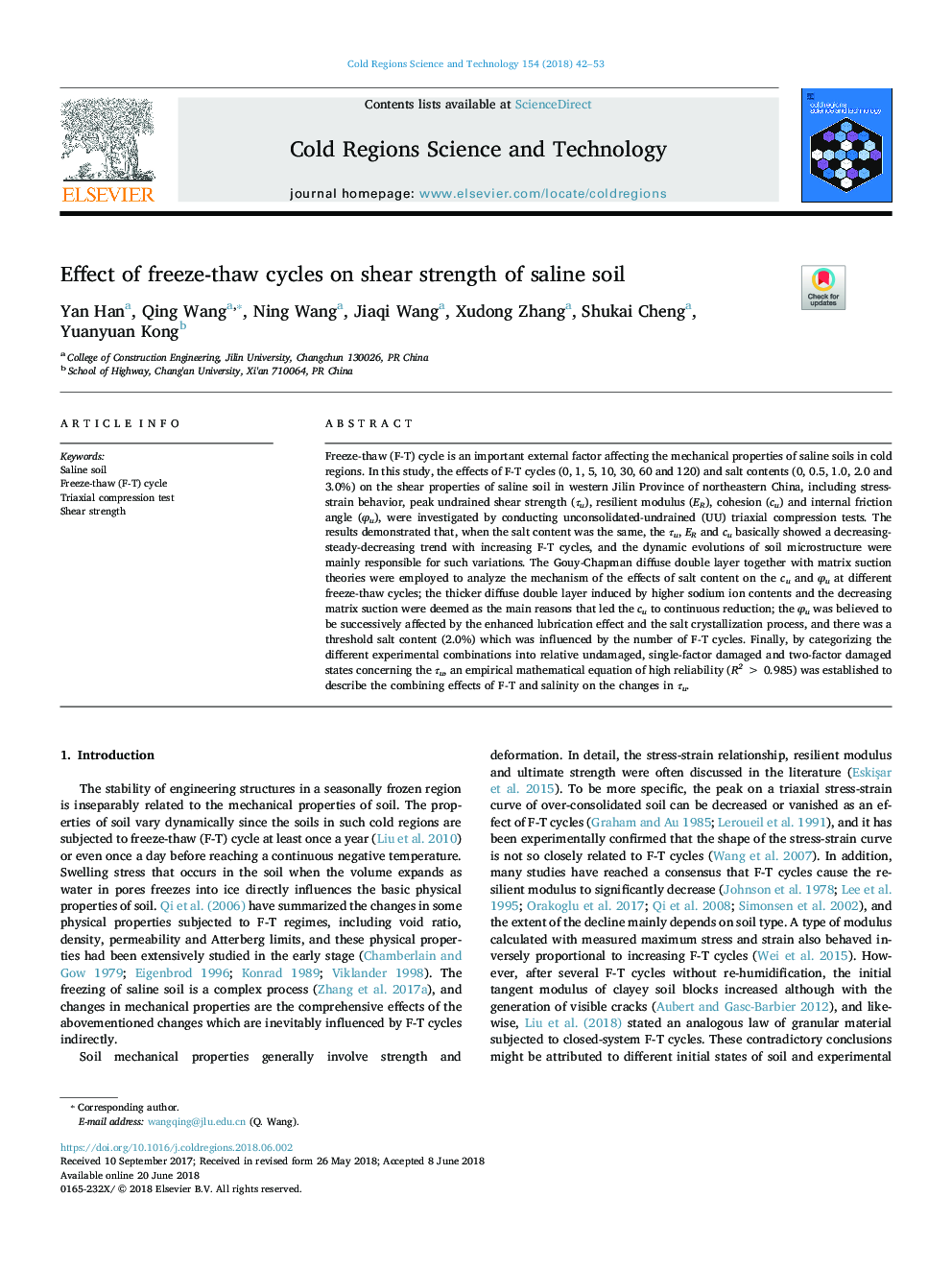| Article ID | Journal | Published Year | Pages | File Type |
|---|---|---|---|---|
| 8906373 | Cold Regions Science and Technology | 2018 | 12 Pages |
Abstract
Freeze-thaw (F-T) cycle is an important external factor affecting the mechanical properties of saline soils in cold regions. In this study, the effects of F-T cycles (0, 1, 5, 10, 30, 60 and 120) and salt contents (0, 0.5, 1.0, 2.0 and 3.0%) on the shear properties of saline soil in western Jilin Province of northeastern China, including stress-strain behavior, peak undrained shear strength (Ïu), resilient modulus (ER), cohesion (cu) and internal friction angle (Ïu), were investigated by conducting unconsolidated-undrained (UU) triaxial compression tests. The results demonstrated that, when the salt content was the same, the Ïu, ER and cu basically showed a decreasing-steady-decreasing trend with increasing F-T cycles, and the dynamic evolutions of soil microstructure were mainly responsible for such variations. The Gouy-Chapman diffuse double layer together with matrix suction theories were employed to analyze the mechanism of the effects of salt content on the cu and Ïu at different freeze-thaw cycles; the thicker diffuse double layer induced by higher sodium ion contents and the decreasing matrix suction were deemed as the main reasons that led the cu to continuous reduction; the Ïu was believed to be successively affected by the enhanced lubrication effect and the salt crystallization process, and there was a threshold salt content (2.0%) which was influenced by the number of F-T cycles. Finally, by categorizing the different experimental combinations into relative undamaged, single-factor damaged and two-factor damaged states concerning the Ïu, an empirical mathematical equation of high reliability (R2â¯>â¯0.985) was established to describe the combining effects of F-T and salinity on the changes in Ïu.
Related Topics
Physical Sciences and Engineering
Earth and Planetary Sciences
Earth and Planetary Sciences (General)
Authors
Yan Han, Qing Wang, Ning Wang, Jiaqi Wang, Xudong Zhang, Shukai Cheng, Yuanyuan Kong,
